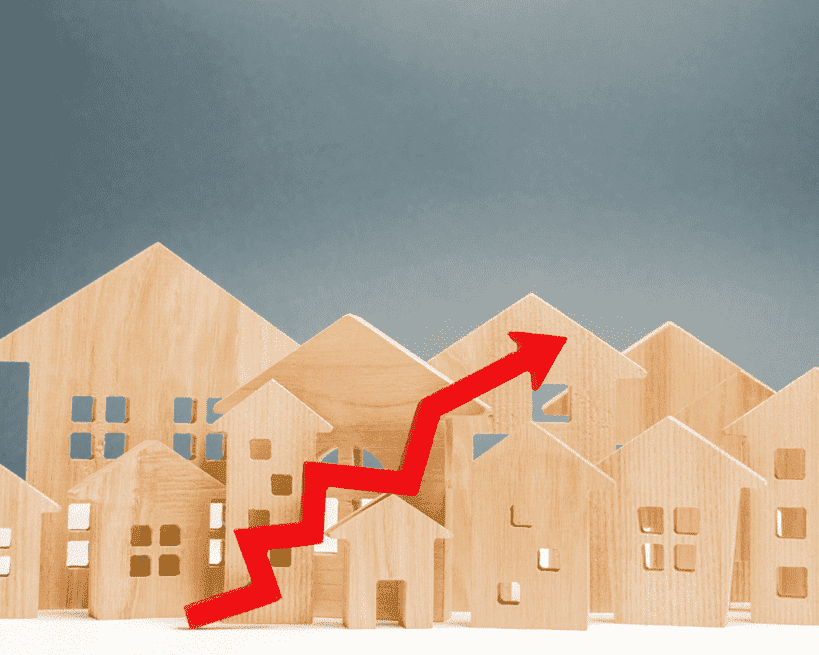Jaw-Dropping Trends: U.S. Mortgage Rates Continue to Skyrocket!
In recent weeks, mortgage rates in the United States have been on an upward trajectory, increasing for the third consecutive week.
In recent weeks, mortgage rates in the United States have been on an upward trajectory, increasing for the third consecutive week. This news comes as a result of Freddie Mac's latest Primary Mortgage Market Survey, which revealed that the 30-year fixed-rate mortgage (FRM) averaged 6.96 percent as of August 10, 2023. This significant rise in mortgage rates has prompted homeowners and potential buyers alike to closely monitor the market and adjust their financial plans accordingly.

Freddie Mac News Facts
According to Freddie Mac's report, the average rate for a 30-year fixed-rate mortgage stood at 6.96 percent, slightly higher than the previous week's average of 6.90 percent. It is important to note that this figure represents a significant increase compared to the same period of the previous year, when the 30-year FRM averaged a much lower rate of 5.22 percent. This substantial spike in mortgage rates has implications across the housing market, warranting closer examination of the factors contributing to this upward trend.
The 15-year fixed-rate mortgage also experienced a notable increase, averaging 6.34 percent compared to last week's average of 6.25 percent. Similarly, this demonstrates a substantial rise compared to the 15-year FRM's average rate of 4.59 percent from a year ago. These rising mortgage rates have raised concerns among homeowners and potential buyers, as they can significantly impact affordability and borrowing costs.
Factors Driving the Upward Trend
Understanding the factors behind the steady increase in mortgage rates is crucial for homeowners and prospective buyers seeking to navigate the current housing market effectively. Several key factors contribute to the rise in mortgage rates, including economic indicators such as inflation, employment, and market demand. The Federal Reserve's monetary policy decisions, which directly influence interest rates, are also critical in shaping the mortgage rate landscape.
Economic indicators play a significant role in determining mortgage rates. Inflation, for instance, is a primary concern for lenders, as it erodes the value of the money they lend out. As inflation rises, lenders compensate by increasing interest rates. To counterbalance the risk of inflation, lenders demand higher rates to protect their investments and maintain profitability.
Employment stability also affects mortgage rates. When the job market experiences growth and low unemployment rates, lenders feel more confident in lending money, resulting in lower interest rates. Conversely, economic downturns or high unemployment rates may prompt lenders to raise rates in response to increased risk.
Market demand is another crucial factor. When demand for mortgages increases, lenders have less incentive to offer lower rates as they already have a high volume of potential borrowers. Conversely, when demand is low, lenders may reduce rates to attract more borrowers and stimulate the housing market.
The Role of the Federal Reserve
The Federal Reserve plays a vital role in the determination of mortgage rates. By closely monitoring economic indicators and market trends, the Federal Reserve adjusts its monetary policy accordingly, which ultimately impacts interest rates. When the Federal Reserve decides to raise short-term interest rates, as it has done in recent years, mortgage rates typically follow suit.
As the economy grows and inflation becomes more of a concern, the Federal Reserve may opt to increase interest rates to combat rising prices. This has a direct effect on mortgage rates, which are influenced by long-term interest rates tied to the bond market. Therefore, it is essential for homeowners and aspiring buyers to pay attention to the Federal Reserve's decisions, as they greatly impact the affordability of borrowing for housing.
Impact on Homeownership and the Housing Market
The continuous increase in mortgage rates has significant implications for homeownership and the broader housing market. As rates rise, the affordability of borrowing decreases, creating financial barriers for potential buyers. Higher mortgage rates often result in higher monthly mortgage payments, making it more challenging for individuals and families to qualify for loans and purchase homes.
For existing homeowners, the rise in rates may affect decisions regarding refinancing. With higher rates, the cost of refinancing a mortgage increases, reducing the potential savings and benefits associated with the process. Homeowners considering refinancing must carefully evaluate the current market conditions to determine if it is a favorable time to proceed.
In addition, higher mortgage rates can impact the housing market as a whole. Potential buyers who are deterred by rising rates may delay their purchasing plans, leading to decreased demand and potentially stagnating housing prices. Housing market conditions greatly depend on supply and demand dynamics, and any disruptions caused by rising mortgage rates have the potential to impact the overall health of the market.
As mortgage rates continue their upward climb in the United States, homeowners and potential buyers must stay informed about market trends and factors driving this increase. Economic indicators, the Federal Reserve's monetary policy decisions, and market demand all play significant roles in shaping mortgage rates. While rising rates present challenges for affordability and borrowing costs, it is important to assess individual circumstances and consult with industry professionals to make informed decisions.
Jaw-Dropping Trends: U.S. Mortgage Rates Continue to Skyrocket!
Greece Real Estate Market: Rise of Serviced Apartments
Explore the growing demand for serviced apartments in central Athens, where integrated hospitality services attract savvy investors in the Greece real estate market.
Explore the growing demand for serviced apartments in central Athens, where integrated hospitality services attract savvy investors in the Greece real estate market.
Read moreHome Prices Hit by Climate Change, J.P. Morgan Warns
J.P. Morgan analysts reveal a negative link between climate risk and home price appreciation. Explore the emerging trends and their impact.
J.P. Morgan analysts reveal a negative link between climate risk and home price appreciation. Explore the emerging trends and their impact.
Read moreRenting in Spain: Prices Finally Decline
The cost of renting in Spain trends downwards, averaging €13/m². Discover insights on this shift after years of steep increases.
The cost of renting in Spain trends downwards, averaging €13/m². Discover insights on this shift after years of steep increases.
Read moreRise of Cash Purchases Outside London: A New Trend
Explore the growing trend of cash purchases outside London and its implications for the property market and economic landscape.
Explore the growing trend of cash purchases outside London and its implications for the property market and economic landscape.
Read moreCanada Real Estate Market: Rents Drop for First Time in over 3 years
For the first time in over three years, average asking rents in Canada fell 1.2% in October, reaching $2,152, according to Rentals.ca.
For the first time in over three years, average asking rents in Canada fell 1.2% in October, reaching $2,152, according to Rentals.ca.
Read moreFewer Than 2% of Dutch Homes Sold to International Buyers
Analyze the decline in international purchases of Dutch houses, revealing key factors influencing this trend and its effects on the housing market.
Analyze the decline in international purchases of Dutch houses, revealing key factors influencing this trend and its effects on the housing market.
Read moreDonald Trump’s Victory May Boost London Property Demand
Knight Frank analyzes how Donald Trump’s election win could increase demand for prime London properties. Discover the potential market shifts.
Knight Frank analyzes how Donald Trump’s election win could increase demand for prime London properties. Discover the potential market shifts.
Read moreGerman Investors Fuel Growth in Greek Real Estate Market
Discover how German-speaking house buyers are revitalizing Greece's realty market, driving demand and investment in stunning properties.
Discover how German-speaking house buyers are revitalizing Greece\'s realty market, driving demand and investment in stunning properties.
Read moreLisbon: 11th City for Rising Luxury House Prices
Lisbon's luxury housing prices increased by 5.6%, outpacing Madrid, Seoul, and Zurich, marking it as a key player in the global real estate market.
Lisbon\'s luxury housing prices increased by 5.6%, outpacing Madrid, Seoul, and Zurich, marking it as a key player in the global real estate market.
Read more













